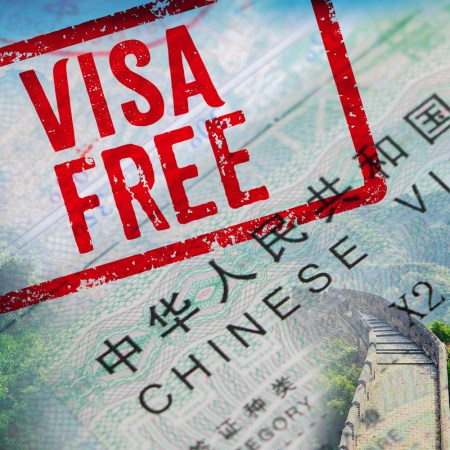People will do just about anything to save money on airfare, even if it comes at the expense of keeping within the confines of the rules and regulations that airlines have set forth for them. And one of the most controversial of these “hacks” is skiplagging.
Per a new report from the Independent, skiplagging — also commonly referred to as “hidden-city” or “throwaway” ticketing — is a term used to describe the “practice of booking a less-expensive flight option with a layover city without planning to fly the entire route. Instead, the stopover is the traveler’s intended destination.” The idea is that it can actually be cheaper to book a two-legged flight (A-B-C) than it is to book a direct flight (A-B), and while it might sound crazy, the savings can be drastic.
Of course, the contention derives from the fact that people aren’t continuing on with the second leg of their trip, leaving seats empty yet unavailable for purchase by other passengers. It’s so contentious that some skiplaggers, as well as the companies that have historically aided and abetted them (i.e. Skiplagged) have found themselves in court.
A Hacker Helped Shore Up This Airline Security Flaw
But not before publishing a blog post titled “How to completely own an airline in 3 easy steps and grab the TSA nofly list along the way”One such suit from February 2019 involved Lufthansa suing a passenger who bought a return business-class ticket from Seattle to Oslo with a stop in Frankfurt for roughly £600 but didn’t continue on after landing in Germany. Lufthansa asserted that the passenger should have paid £2,769 for the flight to Frankfort. But who could blame him? Not the court, as fate would have it. In fact, United has also lost a suit, which eventually lead to Spain ruling that skiplagging and hidden-city ticketing is legal, according to Simple Flying, and…lots of fine print.
“The fare is applicable for a ticket used fully, in sequential order for the specified journey and on the specified dates. As outlined in the General Conditions of Carriage, any non-compliant use noticed on the day of travel may incur an additional flat-rate fee at the airport for the amount of: €125 in the Economy cabin and €300 in the Business cabin, for flights within Europe… €500 in the Economy and Premium Economy cabins, €1,500 in the Business and La Première cabins… for intercontinental flights,” Air France’s website reads. American Airlines even went so far as to send a memo to travel agents back in 2021, threatening “unfavorable outcome[s]” for passengers caught skiplagging.
That said, as far as I can tell, it hasn’t actually resulted in any real unfavorable outcomes for anyone except the airlines, save for a few reclaimed miles, though, that doesn’t mean you shouldn’t proceed with caution. After all, in order to win a court case against a major airline, you need the wherewithal to go head-to-head with a major airline in court. Or, at the very least, to pay the balance of the cost of your trip.
But if the threat of either of those things isn’t enough to put you off to skiplagging, just know that, in order to pull it off…you also can’t check a bag. So, do with that information what you will.
Thanks for reading InsideHook. Sign up for our daily newsletter and be in the know.



















